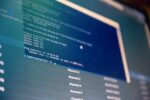The Waifumiia Leak: Unveiling the Controversial Data Breach
-
Table of Contents
- The Waifumiia Leak: Unveiling the Controversial Data Breach
- The Origins of the Waifumiia Leak
- The Impact of the Waifumiia Leak
- 1. Impact on Individuals
- 2. Impact on Waifumiia
- The Implications of the Waifumiia Leak
- 1. Heightened awareness of data privacy
- 2. Increased focus on cybersecurity
- 3. Regulatory scrutiny and legal reforms
- Q&A
- 1. How can individuals protect themselves in the aftermath of the Waifumiia leak?
- 2. How can organizations prevent data breaches like the Waifumiia leak?
- Summary
Data breaches have become an all too common occurrence in today’s digital age. From major corporations to government agencies, no entity seems to be immune to the threat of cyberattacks. One recent incident that has garnered significant attention is the Waifumiia leak. In this article, we will delve into the details of this controversial data breach, exploring its origins, impact, and implications for individuals and organizations alike.
The Origins of the Waifumiia Leak
The Waifumiia leak refers to the unauthorized disclosure of sensitive information from the databases of Waifumiia, a popular online platform that specializes in connecting artists and fans. The breach, which occurred in early 2021, exposed the personal data of millions of users, including their names, email addresses, and even payment details.
According to cybersecurity experts, the breach was the result of a sophisticated hacking operation carried out by a group of skilled cybercriminals. The attackers exploited a vulnerability in Waifumiia’s security infrastructure, gaining unauthorized access to the platform’s databases and exfiltrating the sensitive information.
The Impact of the Waifumiia Leak
The repercussions of the Waifumiia leak have been far-reaching, affecting both individuals and the platform itself. Let’s examine the impact from both perspectives:
1. Impact on Individuals
For the users whose data was compromised in the Waifumiia leak, the consequences can be severe. Here are some of the potential ramifications:
- Identity theft: With access to personal information such as names, email addresses, and payment details, cybercriminals can engage in identity theft, potentially causing financial loss and damage to the victims’ credit scores.
- Phishing attacks: Armed with the leaked email addresses, hackers can launch targeted phishing campaigns, tricking users into revealing additional sensitive information or installing malware on their devices.
- Reputation damage: If any compromising information was exposed during the breach, individuals may face reputational damage, both personally and professionally.
2. Impact on Waifumiia
The Waifumiia leak has also had significant consequences for the platform itself:
- Loss of trust: The breach has eroded the trust of Waifumiia’s user base, potentially leading to a decline in user engagement and a loss of revenue.
- Legal and regulatory implications: Depending on the jurisdiction, Waifumiia may face legal consequences and regulatory scrutiny for failing to adequately protect user data.
- Reputational damage: The incident has tarnished Waifumiia’s reputation as a secure platform, which may deter new users from joining and damage its standing within the industry.
The Implications of the Waifumiia Leak
The Waifumiia leak serves as a stark reminder of the importance of robust cybersecurity measures and the potential consequences of failing to prioritize data protection. Here are some key implications of this incident:
1. Heightened awareness of data privacy
The Waifumiia leak has brought the issue of data privacy to the forefront of public consciousness. Users are becoming increasingly aware of the risks associated with sharing personal information online and are demanding greater transparency and accountability from the platforms they use.
2. Increased focus on cybersecurity
Organizations, both large and small, are now recognizing the need to invest in robust cybersecurity measures. The Waifumiia leak serves as a wake-up call, highlighting the potential financial, legal, and reputational consequences of a data breach.
3. Regulatory scrutiny and legal reforms
Incidents like the Waifumiia leak often lead to increased regulatory scrutiny and the introduction of new data protection laws. Governments around the world are under pressure to strengthen existing regulations and impose stricter penalties on organizations that fail to adequately protect user data.
Q&A
1. How can individuals protect themselves in the aftermath of the Waifumiia leak?
Individuals can take several steps to protect themselves following a data breach:
- Monitor financial accounts: Regularly review bank statements and credit reports for any suspicious activity.
- Change passwords: Update passwords for all online accounts, using strong, unique combinations.
- Enable two-factor authentication: Add an extra layer of security by enabling two-factor authentication wherever possible.
- Be cautious of phishing attempts: Exercise caution when clicking on links or providing personal information online, especially in unsolicited emails.
2. How can organizations prevent data breaches like the Waifumiia leak?
Organizations can implement several measures to enhance their cybersecurity posture:
- Regular security audits: Conduct regular audits to identify vulnerabilities and address them promptly.
- Employee training: Educate employees about best practices for data protection and cybersecurity awareness.
- Encryption and access controls: Implement robust encryption mechanisms and restrict access to sensitive data.
- Incident response plan: Develop a comprehensive incident response plan to minimize the impact of a potential breach.
Summary
The Waifumiia leak serves as a stark reminder of the potential consequences of a data breach. The incident has had a significant impact on both individuals and the platform itself, highlighting the importance of data privacy and robust cybersecurity measures. As individuals become more aware of the risks associated with sharing personal information online, organizations must prioritize data protection to maintain trust and avoid legal and reputational damage. By implementing proactive security measures and adhering to best practices, both individuals and organizations can mitigate the risks posed by data breaches and safeguard sensitive information.




0 Comment